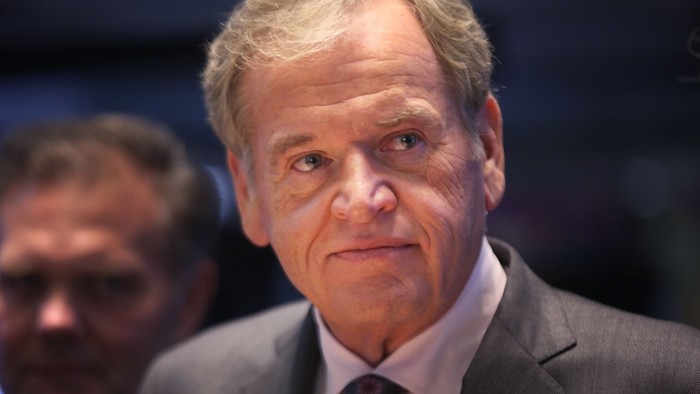Unlock the Editor’s Digest for free
Roula Khalaf, Editor of the FT, selects her favourite stories in this weekly newsletter.
Advertising is often a game of putting a new spin on a familiar idea. So it is for Omnicom boss John Wren. After failing to execute a mega ad merger with French rival Publicis Groupe in 2014, Wren is having another crack at consolidation — this time with US rival Interpublic.
On paper, the all-stock tie-up, which would value Interpublic at about $13bn, makes plenty of sense. The rise of digital ad platforms such as those run by Google and Facebook, owned by Alphabet and Meta Platforms respectively, has eroded demand for the services offered by traditional ad agencies. GroupM, a media agency owned by WPP, expects global ad revenues to surpass $1tn for the first time this year — but Alibaba, Amazon, ByteDance, Google and Meta are expected to earn more than half of that.
The growing use of artificial intelligence has heaped further pressure on the industry by opening the door to upstart competitors, which are using the technology to churn out campaigns faster and cheaper.
Underscoring this shift, even though global advertising spending has grown exponentially over the past decade, Omnicom’s $14.7bn in revenue, as of last year, has barely changed. By contrast, Publicis, which has been quicker to adapt to new technology by acquiring data and ecommerce companies, has managed to more than double its revenue during the same period.
Combining Omnicom and Interpublic would allow the two companies to pool resources and cut costs. The total present value of the $750mn in annual cost savings being touted easily covers the 22 per cent premium — worth about $2.3bn — that Omnicom is paying over Interpublic’s closing price on Friday.
Wren also seems to have learnt from the cultural issues that helped foil his last big attempt to bulk up. Omnicom would be firmly in the driver’s seat this time around. Wren would become chair and chief executive of the combined company while Interpublic head Philippe Krakowsky would become co-president and co-chief operating officer.
That said, the lifeblood of the ad business is creativity. While scale brings greater media buying power, it is not clear that the deal would foster better ideas or greater innovation. If anything, analysts at Citigroup warned that investors should be wary of potential revenue dis-synergy. That could occur if rival agencies use the deal and worries about potential client conflict to steal accounts and talents.
Investors, for now, aren’t buying the plan. The combined market value of the two companies by Monday afternoon was less than that on Friday, before the tie-up was announced. The problems that have driven Omnicom and Interpublic together call for something more creative than simple M&A.
Read the full article here

